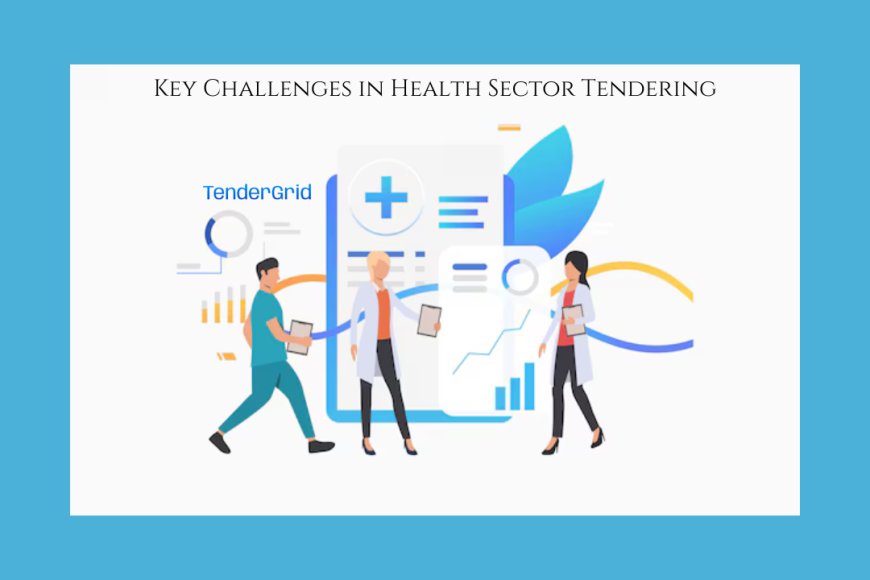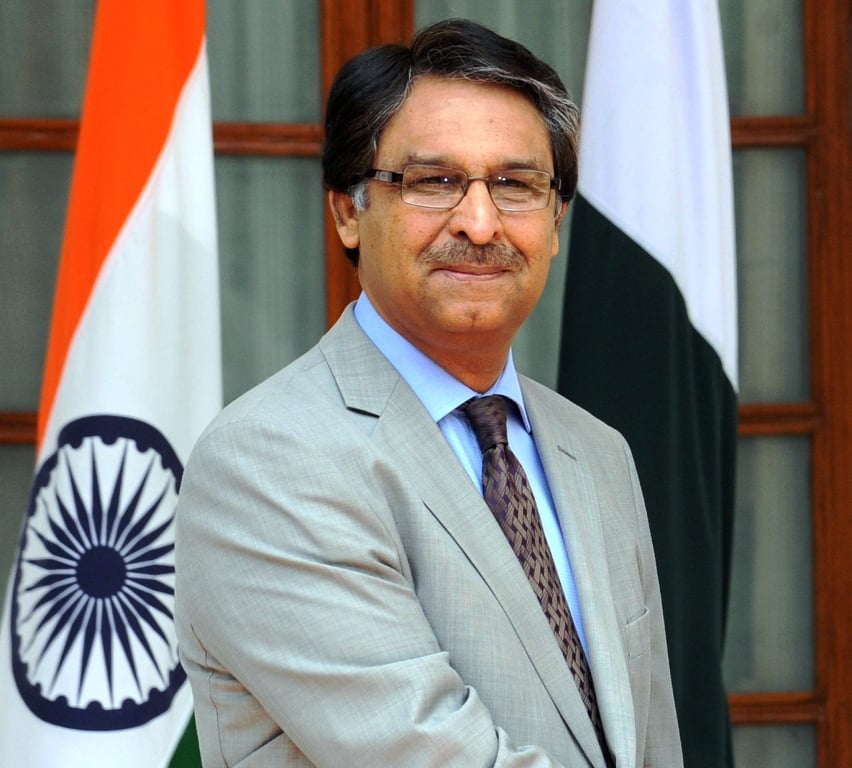Key Challenges in Health Sector Tendering
Understand the common obstacles in health sector tendering and explore effective solutions for key challenges like transparency and compliance.

The complexity of the world's health landscape raises the importance of tendering within the health sector. Effective procurement processes are the need of the hour to ensure timely access to healthcare services, medications, and medical supplies. Health sector tenders play a significant role in this process, as they govern how governments and organizations acquire the necessary goods and services required to enhance public health. However, the tendering process has numerous challenges that make it inefficient, less transparent, and ineffective. This must be addressed to improve the procurement system related to Global Health and Services.
This blog outlines major challenges in the health sector tendering process and possible solutions to overcome those challenges.
Before moving forward with the key challenges, let us understand the health sector tendering:
Understanding Health Sector Tendering
Health sector tendering refers to the formal process by which governments, organizations, and healthcare providers procure goods and services needed to meet public health needs. This encompasses purchases of medical supplies, pharmaceuticals, equipment, as well as healthcare services. Tendering is a necessary part of public procurement aimed at ensuring that health sector resources are acquired in an honest, transparent, and cost-effective manner.
The importance of the health sector tendering about global challenges related to health cannot be underscored. As the needs of quality healthcare services become very demanding, efficient processes must be ensured for prompt access to essential health products and services. Moreover, pressure to meet emerging diseases mounts against healthcare systems all over the world, advancing technologies, and resource limitations. It is crucial for well-developed and transparent tendering systems to maintain healthcare delivery integrity and sustainability, support competition, and promote innovation.
Key Challenges in Global Health Tenders
1. Complexity and Bureaucracy in Government Tenders:
Government Tenders related to the health sector often face rigid processes, over-paperwork, and complicated compliance requirements. These factors not only make the process related to global health and services tenders difficult for suppliers but can also lead to significant delays in the delivery of essential health services.
Impact on Bidders: Government tenders are quite heavy to deal with for small or new suppliers. They might not be in a position to undertake the bureaucratic hassle, leading to a lesser number of competitors. Administrative inefficiencies lead to delays and, eventually, cause shortages of life-saving medicines or equipment in health institutions.
Solution: Simplifying the process through the use of digital platforms could significantly reduce bureaucratic hurdles. Adopting digital solutions that automate compliance checks and reduce paperwork could speed up the tendering process and increase competition. Governments should also focus on providing clearer, more standardized guidelines for vendors to ensure they understand the tendering requirements.
2. Transparency and Accountability in Health Sector Tenders:
The most significant challenge for health sector tenders is the lack of transparency. Favoritism, corruption, and inconsistent evaluations can all dilute the integrity of the tendering process, causing suboptimal procurement decisions. This affects the quality of healthcare services and ultimately erodes public trust in government health initiatives.
Effects on the Health System: Procurement of low quality goods and services would have serious ramifications for patient care, but procurement would be based more on obscure criteria than on merit. Furthermore, people's confidence in the health sector's integrity in procurement is damaged, leading to greater distrust about the effectiveness of health programs.
Solution: To prevent corruption and increase transparency, health sector organizations should employ open data initiatives whereby tender-related documents and decisions are made publicly accessible. Independent audits and digital platforms through which tenders can be tracked in real-time also help in the accountability of procurement bodies and fair evaluations.
3. Matching Healthcare Needs with Supplier Capabilities:
Healthcare needs are complex and often result in mismatches between what governments or health organizations require and what suppliers are capable of delivering. This problem is especially evident in global health tenders, where procurement decisions must consider local resource availability, cultural differences, and regional disease burdens.
Global Health Considerations: The suppliers in global health tenders should consider not only the quality of the products but also the ability to deliver them in a way that meets local demands. For instance, procurement of vaccines in low-resource settings has to account for cold chain storage and logistical challenges in reaching remote areas.
Solution: To better align tenders with actual healthcare needs, government policies, and institutions can improve interactions with suppliers to tailor specifications towards the realities of the local environment. Data-driven approaches taking into account regional disease burdens and healthcare infrastructure ensure that tenders are aligned better with the specific needs of the population.
4. Increased Competition and the Dangers of Low-Balling:
To reduce procurement costs, increased competition in government health tenders may sometimes lead to low-ball bidding, where suppliers bid unrealistically low to gain the contract. This would appear to be beneficial in the short term but may often undermine the quality of the goods or services procured.
Impact on Quality: Low-balling by suppliers may lead to cutting corners to meet the price point, which results in substandard products or services. This is particularly concerning in the healthcare sector, where quality is paramount. Low-bid contracts can lead to poor-quality medical supplies, faulty equipment, or inadequate services, all of which can endanger patient safety.
Solution: Health sector tenders should establish minimum quality standards to which bidders are required to adhere irrespective of price. The assessment of bids should be on total value, that is, taking into account the factors of quality, reliability, and supplier capability to meet service requirements instead of cost alone. The problem of low-balling could be mitigated and ensure quality is not compromised.
5. Lack of Innovation and Flexibility in Tender Processes:
Traditional health sector tender processes tend to suppress innovation. This is a particularly critical issue in an age where new technologies and solutions can transform the face of patient care. Stiff procurement models may restrict the capacity of governments and organizations to embrace the most recent healthcare innovations.
Impact on Technological Advancement: The health sector is rapidly changing as well, with new technologies being used in telemedicine, AI-driven diagnostics, and innovative medical appliances that improve patient outcomes. Traditional tendering processes can fail to accommodate these novelties because they rely more on compliance and processes than on innovation.
Solution: Innovation to be encouraged in the healthcare sector, and the tendering processes ought to be flexible. The addition of competitive dialogues where providers can present innovative solutions may include more room for innovation through the terms of tendering. Governments and organizations are obligated to source and collaborate with innovators and startup companies to seek new technologies.
6. Risk Management and Supply Chain Disruptions:
One of the most important risks that global health tenders face is supply chain disruption. Events such as pandemics, geopolitical tensions, and natural disasters can severely affect the delivery of critical health supplies and services.
This means that the disruption in supply chains can lead to huge delivery delays of medical supplies, vaccines, and treatments to the public.
Solution: Governments and organizations should diversify their suppliers and build robust contingency plans to mitigate supply chain risks. Investing in technologies that allow for better supply chain tracking and forecasting can also help anticipate potential disruptions and ensure the timely delivery of essential goods and services.
Conclusion
In conclusion, health sector tendering is very important to ensure access to quality care, but it is affected by significant challenges that weaken its efficiency and effectiveness. From bureaucratic complexities and issues of transparency to mismatched supplier capabilities and supply chain disruptions, these obstacles undermine the potential for achieving optimal health outcomes.
However, there are a few solutions that can improve the tendering process, such as digital platform simplification of processes, transparency promotion, innovation enhancement, and risk management improvement.
Here, eProcurement platforms like Tender Grid become quite important in modernizing the practices of procurement. Utilizing, Tender Grid can streamline operations, improve accountability, and enhance competition so that it can lead towards better public healthcare delivery as well as more efficient procurement processes. With the changing global health landscape, such digital solutions will be the way to overcome the challenges faced in health sector tendering.
What's Your Reaction?
























